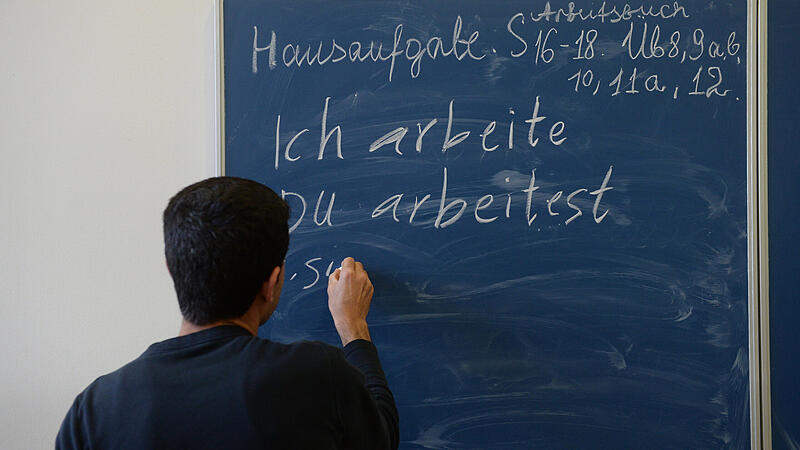Image: Marijan Murat (dpa)
Around seven out of ten asylum seekers in basic care would need literacy. Integration Councilor Wolfgang Hattmannsdorfer (VP) therefore sees the key to successful integration into working life in the fact that those affected already learn to read and write in the basic care. This applies primarily to those asylum seekers “who are very likely to be recognized as entitled to asylum,” said Hattmannsdorfer on the occasion of the 15th integration conference of the state of Upper Austria, which took place in Linz on Thursday. This mainly applies to Syrians, who currently have the “best prospects of staying in the country”.
On the one hand, the “Hello in Upper Austria” courses, which were introduced for Ukrainians to learn everyday language, are now to be extended to Syrians as well. In addition, a separate German support program is to be developed specifically for companies: This is intended to continue to support migrants who are already employed in learning the language. The courses would increasingly be offered to employed persons outside of working hours.
A study by EcoAustria, which was presented at the media event held in Linz on Thursday, served as the basis. From an economic point of view, migration primarily represents an increase in the labor supply, said EcoAustria director Monika Köppl-Turyna. In the medium and long term, however, migration has hardly any effect on wage developments and the likelihood of employment. The prerequisite for this is that both the qualifications and the employment structure of migrants correspond to those of the local population, said Köppl-Turyna.
Politicians are required to the extent that the acquisition of the German language is promoted before school. “Children must have a sufficient command of the German language before entering the first school year,” said the author of the study.
Source: Nachrichten




